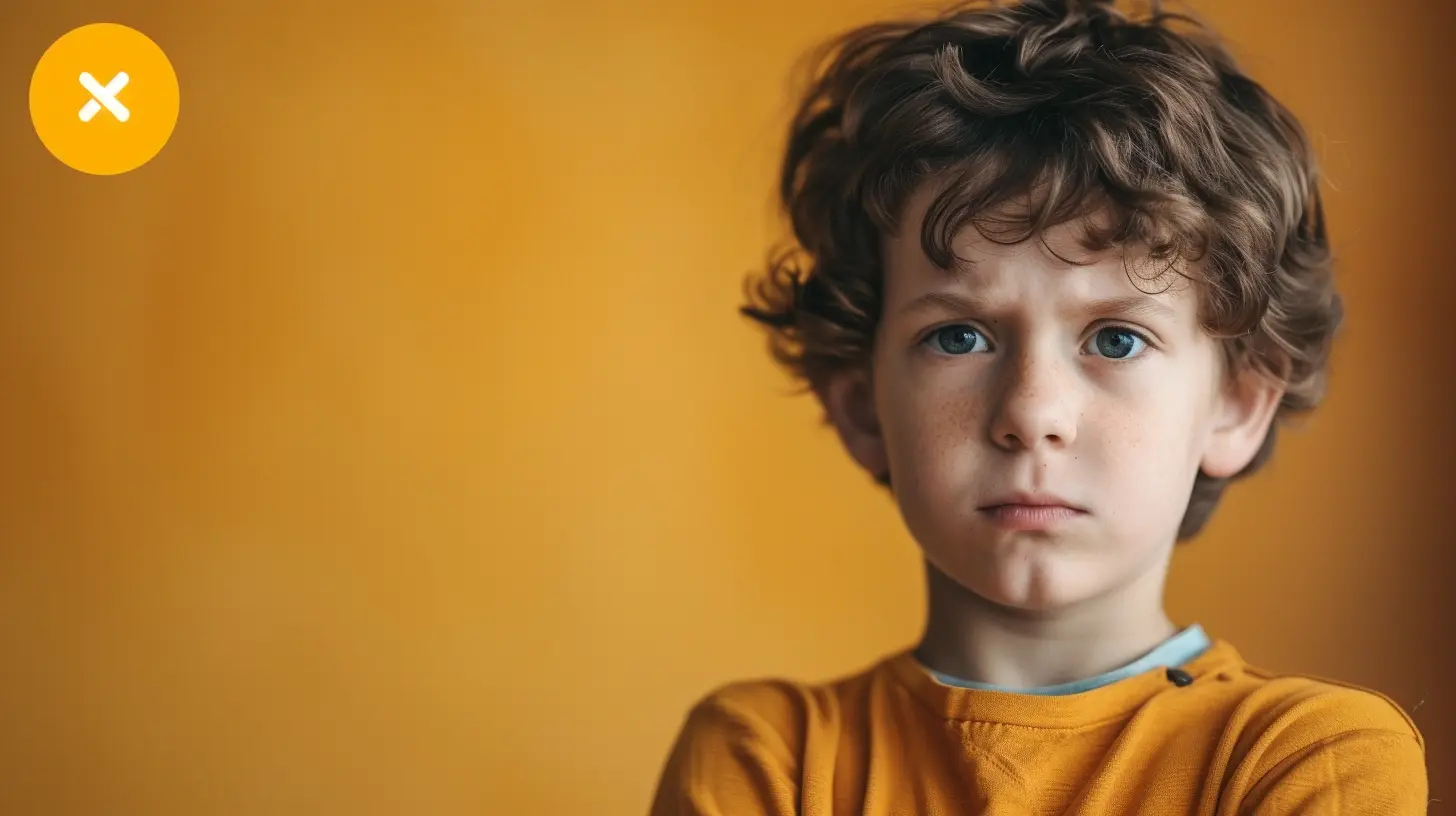Teaching Problem-Solving Skills Using Positive Reinforcement
18 March 2025
As parents, one of our biggest responsibilities is equipping our kids with the tools they need to navigate life. And what’s one skill they’ll use again and again? Problem-solving! Whether it’s figuring out how to share toys with a sibling or how to deal with a tricky test question, problem-solving is something kids need to master. But here’s the twist—teaching problem-solving doesn’t have to feel like a boring lecture or strict boot camp. In fact, one of the most effective tools you can use is positive reinforcement.
Yep, you heard me right. Positive reinforcement isn’t just for house training the puppy (though it works wonders there too). When applied thoughtfully, it can help kids develop the confidence and mindset needed to tackle challenges head-on. Let’s dive into the nitty-gritty of how to teach problem-solving skills using positive reinforcement—without making it feel like rocket science! 
Why Problem-Solving Skills Matter
Let’s be real—life is full of curveballs. From playground disagreements to adulthood struggles, problems pop up left and right. Teaching your child how to think critically, calmly evaluate situations, and come up with solutions is a gift that will last a lifetime.Problem-solving doesn’t just help kids get through tough situations. It also builds essential life skills like:
- Critical thinking: They learn to analyze situations logically.
- Confidence: Knowing they can handle problems makes them feel capable.
- Emotional regulation: Problem-solving teaches patience and resilience.
- Creativity: Coming up with solutions often involves thinking outside the box.
Sounds pretty amazing, right? But here’s the thing—kids aren’t born knowing how to solve problems. It’s a skill they develop over time, with a little help from you. 
What Is Positive Reinforcement?
Before we jump into the “how,” let’s make sure we’re on the same page about what positive reinforcement actually is. At its core, positive reinforcement involves rewarding desired behaviors to encourage those behaviors to happen again in the future.In other words, when your kid does something right, you recognize and reward it. The “reward” doesn’t have to be a big deal—sometimes a simple “Good job!” or a high five can work wonders.
For example, let’s say your child shares their toy with a friend. You could say, “I love how kind you were sharing your toy! That was such a thoughtful thing to do!” Boom—positive reinforcement in action.
When used consistently, positive reinforcement motivates kids to repeat good behaviors. And when it comes to problem-solving? The same principle applies! 
How Positive Reinforcement Builds Problem-Solving Skills
So, how exactly does positive reinforcement tie into teaching problem-solving skills? Here’s the lowdown:1. It Boosts Confidence
Think about this—if every time you did something right, someone told you, “Wow, that was amazing!” wouldn’t you start to believe in yourself? Kids are no different. Positive reinforcement shows them that they’re capable of solving problems, which helps build their confidence over time.2. It Encourages Effort
Let’s face it—problem-solving can be tough, especially for kids who are just learning the ropes. By praising their effort, not just the outcome, you send the message that trying your best is what really matters.For instance, if your child tries to tie their shoes but doesn’t get it quite right, you could say, “I’m so proud of how hard you worked on that! You’re getting closer every time!” This encourages them to keep going instead of giving up.
3. It Reinforces Critical Thinking
When you use positive reinforcement to highlight specific problem-solving behaviors, like thinking creatively or staying calm under pressure, it helps your child recognize which skills are most valuable.For example, if they figure out a way to split chores with their sibling, you might say, “The way you came up with a fair plan to divide the chores was so smart! That shows a lot of teamwork and creativity.” 
How to Use Positive Reinforcement for Teaching Problem-Solving
Alright, now for the fun part—putting it into action! Here are some practical tips to get you started:1. Set the Stage for Problem-Solving
Let’s be honest—kids don’t always know when they’re problem-solving. Sometimes, it feels like they’re just winging it (and honestly, they kind of are). Help them recognize opportunities to solve problems by pointing them out.For example:
- If they’re struggling to build a block tower that keeps falling, you could say, “Hmm, looks like there’s a problem with the tower. What do you think you could try to fix it?”
- If they’re frustrated about not being able to zip their jacket, you could ask, “Do you need a different approach? What’s one thing you could try next?”
2. Catch Them in the Act
The best time to use positive reinforcement? When your child is actively trying to solve a problem! Whether they succeed or not, make sure to acknowledge their effort.You might say:
- “I love how you thought of three different ideas to fix the tower!”
- “You stayed so calm even though that was frustrating. Great job not giving up!”
This reinforces their positive behaviors and encourages them to keep problem-solving in the future.
3. Celebrate Small Wins
Not every problem will have a perfect solution, and that’s okay. Celebrate the small wins along the way to keep your child motivated.For example:
- If your child figures out how to negotiate TV time with their sibling without fighting, celebrate their teamwork!
- If they manage to stay calm after their Lego creation falls apart, celebrate their patience and resilience.
The key is to focus on the process, not just the outcome.
4. Use Rewards Sparingly
While positive reinforcement often involves rewards, they don’t always have to be physical or material. Sometimes, verbal praise, hugs, or extra playtime together are all the rewards your child needs.If you do decide to use material rewards, keep them small and occasional. For instance, if your child solves a particularly challenging problem, you might say, “You worked so hard on that! How about we celebrate with some ice cream?”
Common Mistakes to Avoid
Using positive reinforcement is pretty straightforward, but there are a few pitfalls to watch out for:1. Avoid Bribing
Positive reinforcement is about rewarding good behavior after it happens. Bribing, on the other hand, is when you offer a reward beforehand to get your child to do something. It’s a subtle difference, but bribing can sometimes backfire and make kids less motivated to solve problems on their own.2. Be Specific
Generic praise like “Good job!” is nice, but it doesn’t tell your child what they did well. Be specific about the behavior you’re reinforcing. For example, instead of saying, “Great work,” try, “I love how you calmly explained your idea to your sibling!”3. Don’t Overdo It
Too much praise can lose its impact. Be genuine and save your reinforcement for moments when your child is truly putting in effort or showing growth.Teaching by Example
Finally, remember that kids learn by watching you. If they see you calmly solving problems and using positive self-talk, they’ll follow your lead. The next time you’re faced with a tricky situation, let them see your thought process. Say things like, “Hmm, this is a tough one. Let me think of some ways we could solve this.”Wrapping It Up
Teaching problem-solving skills to kids is one of the greatest gifts you can give them—and using positive reinforcement makes the process both effective and enjoyable. By recognizing their efforts, celebrating small wins, and encouraging creativity, you’re helping your child develop the mindset they’ll need to tackle life’s challenges.And the best part? They’ll feel good about themselves along the way. So next time your little one is faced with a problem, remember—it’s the perfect opportunity to cheer them on and let them shine!
all images in this post were generated using AI tools
Category:
Positive ParentingAuthor:

Zelda Gill
Discussion
rate this article
7 comments
Kassandra McCullough
Positive reinforcement not only fosters problem-solving skills but also nurtures resilience and confidence. By celebrating small victories, we empower our children to embrace challenges, transforming obstacles into opportunities for growth and self-discovery.
April 7, 2025 at 2:47 AM

Zelda Gill
Thank you for highlighting the importance of positive reinforcement! Celebrating small victories truly empowers children and enhances their resilience and confidence in problem-solving.
Ethan Perez
Teaching problem-solving to kids with positive reinforcement is like giving them a treasure map—every small success leads to a bigger prize! Just remember, when they successfully navigate that tricky situation, celebrate like they just found a pot of gold (or at least the remote control) at the end of the rainbow!
April 6, 2025 at 5:03 AM

Zelda Gill
Thank you for the delightful analogy! Celebrating small successes truly transforms the learning journey into an exciting adventure for kids.
Valen Mitchell
This article effectively highlights the importance of positive reinforcement in developing children’s problem-solving skills. By celebrating small successes and offering praise, parents can instill confidence and a growth mindset. This approach not only fosters resilience but also encourages children to explore solutions independently, laying a solid foundation for lifelong critical thinking skills.
April 4, 2025 at 5:00 AM

Zelda Gill
Thank you for your insightful comment! I'm glad you found the article valuable in highlighting the role of positive reinforcement in fostering children's problem-solving skills and confidence.
Declan Mercado
This article highlights the importance of positive reinforcement in teaching kids to tackle problems. Practical tips make it easy to implement!
April 3, 2025 at 2:24 PM

Zelda Gill
Thank you! I'm glad you found the practical tips helpful for applying positive reinforcement in teaching problem-solving skills!
Evelyn Parker
Positive reinforcement is a powerful tool in teaching problem-solving skills. By acknowledging and rewarding children's efforts and successes, parents can encourage resilience and critical thinking. This approach fosters a positive learning environment, equipping children with essential skills for future challenges.
April 2, 2025 at 3:37 AM

Zelda Gill
Thank you for your insightful comment! I completely agree that positive reinforcement not only encourages resilience but also promotes critical thinking in children, creating a strong foundation for their future problem-solving abilities.
Mila Murphy
Because yelling ‘Figure it out!’ isn’t a strategy!
March 28, 2025 at 5:52 AM

Zelda Gill
You're absolutely right! Effective problem-solving requires guidance and support, not just shouting directives. Positive reinforcement helps foster critical thinking and resilience.
Andrew Brown
Thank you for this insightful article! I appreciate the emphasis on positive reinforcement in teaching problem-solving skills. It’s a gentle yet effective approach that fosters trust and independence in children. I look forward to implementing these strategies with my own kids!
March 27, 2025 at 5:21 PM

Zelda Gill
Thank you for your kind words! I'm thrilled to hear that you found the article helpful and plan to use these strategies with your kids. Best of luck!





